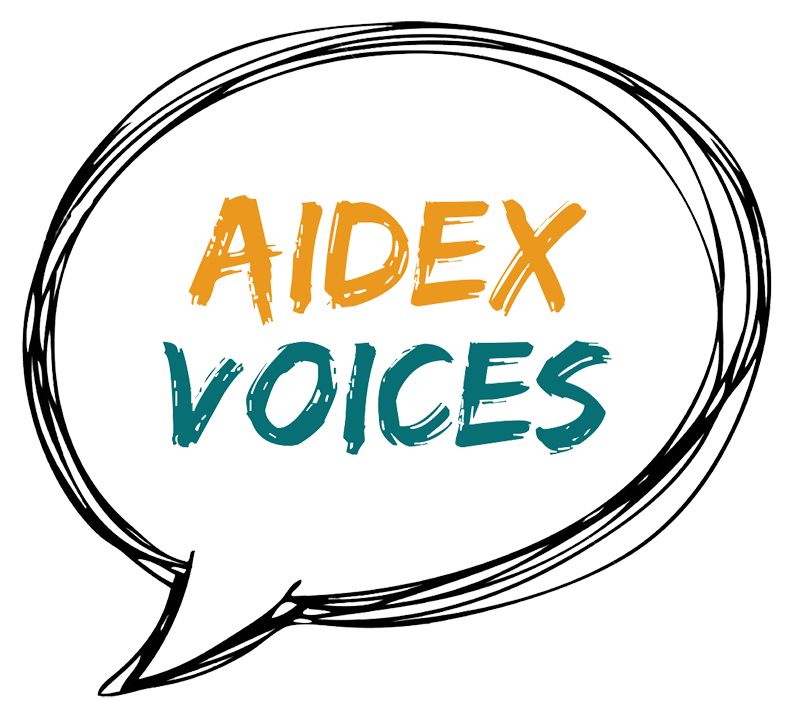For this edition of AidEx Voices we hear from Tanya Wood, Executive Director at CHS Alliance. Tanya will discuss their recently released Humanitarian Accountability Report which focuses on the action needed to meet the commitments made to people affected by crisis.
 While I will no longer be able to celebrates AidEx’s 10 Year Anniversary in Brussels with all of you this Novemeber, I am looking forward to joining the AidEx webinar series on 'Response, recovery and resilience: optimising humanitarian responses to manage global crises'.
While I will no longer be able to celebrates AidEx’s 10 Year Anniversary in Brussels with all of you this Novemeber, I am looking forward to joining the AidEx webinar series on 'Response, recovery and resilience: optimising humanitarian responses to manage global crises'.
Ahead of these webinars I encourage all attendees to read the recently released CHS Alliance’s Humanitarian Accountability Report 2020 ‘Are we making aid work better for people affected by crisis?’. This state-of-the-sector publication provides an evidence-based overview of how well we in the sector are meeting our commitments made to people affected by crisis – a vital part of optimising aid responses to global crisis.
More than five years after the sector came together to launch the Core Humanitarian Standard on Quality and Accountability (CHS), the CHS Alliance – a network of more than 150 humanitarian and development organisations – launched the Humanitarian Accountability Report (HAR) 2020.
The CHS sets out Nine Commitments that organisations and individuals involved in humanitarian response can use to improve the quality and effectiveness of the assistance they provide. The CHS places communities and people affected by crisis at the centre of humanitarian action. As a core standard, the CHS describes the essential elements of principled, accountable and high-quality humanitarian aid. It is a voluntary and measurable standard; organisations can be verified on how well they are meeting each Commitment.
Now more than ever, in the midst of the global COVID pandemic we need to face up to the challenges the aid sector faces, and how much more is needed to make aid work better for the people that matter most.
The HAR 2020 shines a light on the current state of adherence to the Standard by the organisations applying it. The report reveals how much progress CHS verified organisations have made in meeting their commitments to the children, women, men facing disasters globally.
Overcoming barriers
The new report shows that dedicated aid organisations can tackle the toughest barriers to meeting the commitments they made to people affected by crisis.
As a collective, CHS certified organisations* have made gains on three vital accountability issues that the aid sector has been trying to tackle for decades:
- Strengthening local capacities and avoiding the negative effects of aid (CHS Commitment 3);
- Basing humanitarian response on communication, participation and feedback with people affected by crisis (CHS Commitment 4);
- Welcoming and addressing complaints from people affected by crisis (CHS Commitment 5)
*organisations who have been in the CHS certification process for at least three years.
This progress demonstrates CHS verification is a catalyst to make aid more accountable.
 CHS ALLIANCE FRONT COVER FROM HAR 2020
CHS ALLIANCE FRONT COVER FROM HAR 2020
Slow pace of change
Yet the HAR 2020 reveals that the aid sector has not reached its goals. CHS Commitment 6 on coordinated and complementary assistance is the closest to being fully met by verified organisations, while Commitment 5 on welcoming and addressing complaints by people affected by crisis is the lowest scoring. CHS verification data also illustrates that performance is generally better when it comes to establishing organisational policies, rather than what staff do in practice.
Accelerate transformation
The HAR 2020 shows that we are not yet seeing system-wide acceleration towards a transformative approach that gives communities and people affected by crisis strategic influence over aid. The report finds that to accelerate the pace of change committed aid organisations need to harness the power of the multiplier effect; they must intensify their efforts on three cross-cutting actions that raise the standard of aid across the board:
 CHS Alliance graph from HAR 2020
CHS Alliance graph from HAR 2020
 CHS Alliance graphic from HAR 2020
CHS Alliance graphic from HAR 2020
Critical mass needed
Currently, more than 100 organisations have engaged in CHS verification, yet even with renewed efforts by those already applying the CHS, more need to make similar changes at the same time. No humanitarian organisation works in a vacuum. A critical mass of aid actors - NGOs, donors, UN agencies and networks - must unite around the CHS in concert to truly make aid work better for people affected by crisis and fulfil the commitments the sector made to crisis-affected people in 2014.
Get the full report - ahead of AidEx’s November webinar series, read the HAR 2020 on the CHS Alliance’s website.



























